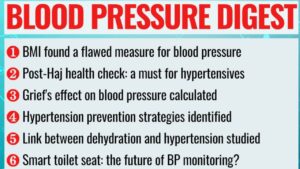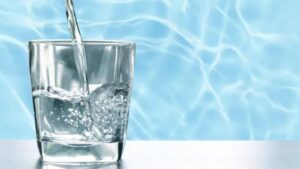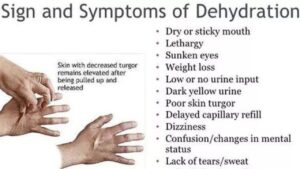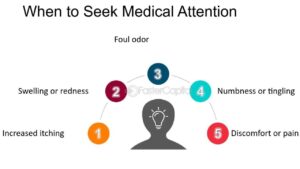Can Dehydration Cause High Blood Pressure
Would dehydration lead to high blood pressure?
It is one of the widespread conditions that occur without anyone’s observation but can be a serious threat to health. The lack of hydration within the body may cause a burst of high blood pressure hazardous to the heart. Understanding how staying hydrated affects your blood pressure is important. This article will explore what connection there could be between being dehydrated and having a level of high blood pressure; more importantly, it focuses on the aspect of how hydration benefits the heart in terms of preventing hypertension.
Key Takeaways
- Dehydration may cause elevated blood pressure.
- Hydration at an appropriate level is quite crucial for taking care of cardiovascular health.
- Low fluid conditions are easily influencing blood volume and pressure.
- Importance of early identification of signs and symptoms of dehydration in prevention
- Simple tips for hydration management would help maintain blood pressure effectively.
- The initial steps towards the understanding of a better sense of hydration needs of the body are very important to be taken in life, leading to it being healthy.
Relationship between dehydration and blood pressure.

Explore how water affects the blood pressure. Learning basic concepts of blood pressure helps us understand its real-world impact on our lives.
Understanding Blood Pressure Basics
Blood pressure is the force with which blood is exerted on the walls of the arteries. The measurements define systolic and diastolic pressures. These measure the force during which the heart is pumping or when it is resting between beats. The smooth flow of blood in the circulatory system largely determines one’s heart health, hence the need for balance between different types of blood pressures. Changes in these measurements could indicate health concerns, so staying hydrated is essential.
How Does Dehydration Affect Cardiovascular Function?
Of course, the effects on the heart cannot be ignored. Low fluid levels lead to a decrease in the blood volume, and it becomes difficult for the heart to pump; it may raise blood pressure and heart rate due to compensation. So, hydration is necessary to keep blood pressure and heart function in a healthy condition.
Dehydration Causes High Blood Pressure

The administration of health care starts with an appreciation of the relationship between dehydration and hypertension. The physiological changes are triggered by low levels of fluids. These have a relevant influence on the blood pressure.
Mechanisms of the Connection
When the fluid levels are low, the blood vessels constrict. This is to make sure that there is enough blood flow and pressure because there is less circulating blood. The heart also begins to pump faster; blood pressure increases.
Research Findings on Dehydration and Hypertension
Numerous studies have looked into the connection between dehydration and hypertension. They have indicated that chronic dehydration may lead to a high blood pressure level, which sustains over time. The best levels of hydration can minimize risks for hypertension. This means that hydration is very crucial to health and cardiovascular health.
Signs and Symptoms of Dehydration

Detecting Early Symptoms
To identify early symptoms, commence your knowledge of several instances of early signs of dehydration. key point:
- Thirst: The desire to drink will be strong.
- Dry mouth: Your production of saliva may be low, and you find that it feels uncomfortable swallowing.
- Fatigue: You probably don’t have the energy level you wish you had due to the low level of fluids.
- Dark urine: Yellow or amber urine usually means that one drinks less.
Advanced Dehydration and Its Symptoms
Serious signs of severe dehydration are far more severe. Keep watchful for these signs:
- Dizziness: A person may become dizzy because the fluid level has dropped.
- Racing pulse: The heart races to keep its blood pressure level as high as possible, hence racing due to a low fluid level.
- Confusion: One may not be able to think clearly and therefore may have difficulty concentrating.
- Very dry skin: With dehydration, the skin will lose its elasticity and become very dry.
Early detection of the dehydrating signs and intervention will prevent it from reaching as severe levels. This will safeguard your health and function generally, including your cardiovascular system.
| Signs of Dehydration | Symptoms of severe dehydration |
| Thirst | Dizziness |
| Dry mouth | Rapid heartbeat |
| Fatigue | Confusion |
| Dark urine | Very dry skin |
Prevention of Dehydration for Better Blood Pressure Management

Effective blood pressure management begins with proper hydration. With these easy hygiene tips and incorporating specific hydration foods into your diet, you can improve your heart health significantly.
Hydration Tips for Daily Life
To keep hydrated daylong, here are some tips:
- Drink at least 8 glasses of water a day, also adjusted for exercise and climate.
- Carry a reusable water bottle to track your drinking and refill often.
- To start your hydration process, have a glass of water first thing in the morning.
Hydrating Foods
Including foods high in hydration in your diet will help lower your blood pressure even more. Here are some great choices:
| Food | Water Content (%) | Additional Benefits |
| Cucumber | 95 | Low in calories and high in nutrients |
| Watermelon | 92 | Contains antioxidants and vitamin C. |
| Strawberries | 91 | High in vitamin C and fiber |
| Celery | 95 | Supports digestion and hydration |
| Cantaloupe | 89 | High in beta-carotene and hydration |
By following these hydration tips, along with a varied diet for hydration, you would be able to improve the control of blood pressure. In addition to the above, it helps to keep the body fit and in good health.
When to Seek Medical Attention

Dehydration and hypertension require one to know when to seek medical help. It is important that you watch out for dehydration symptoms and their impact on your body. Look out for signs to see a doctor.
Recognizing When You Need Help
Knowing dehydration symptoms can save you from various serious health issues. To be able to prevent this, keep an eye out for these indicators:
- Unusual drowsiness: You may be dehydrated if you feel like sleeping unusually.
- Confusion or fogginess: You cannot think and may exhibit other signs of potential complications.
- Fainting spells: Dizziness or fainting may occur due to fluid depletion and high blood pressure.
If you experience any of these symptoms, you have to seek immediate medical attention. Because you’re ignoring these warning signs, you may end up suffering from more severe complications related to cardiovascular issues resulting from dehydration and high blood pressure.
| Dehydration Symptom | Possible Consequence |
| Extreme fatigue | Increased risk of health complications |
| Confusion | Dangerous fluctuations in blood pressure |
| Fainting spells | Risk of falls or injuries |
Your health is at the top priority. By knowing the signs of dehydration, you can get preventive measures about any health problems with high blood pressure.
Conclusion
Recognition of the connection between dehydration and blood pressure is basic to ensuring sound health. Dehydration causes an increase in blood pressure, a condition considered harmful to heart health. Knowing the warning signs of dehydration early and staying hydrated can help in the prevention of hypertension and maintaining a fit body.
As long as you know what fluid you are drinking, this is significant. Even the slightest of changes in your habits can bring about the essentials for an improvement in your health. It could hydrate foods and water enough for hydrating to enhance heart health and overall energy.
Keep getting regular health check-ups. If something suspicious appears, do not hesitate to consult your doctor. Learning and taking responsibility will help you deal with dehydration-related issues with blood pressure.
Frequently Asked Questions
Is dehydration a reason for high blood pressure?
In fact, dehydration can cause high blood pressure. If your body lacks fluids, it may contract your blood vessels. It is the same behavior that raises blood pressure. So, hydration, in fact, is essential for healthy hearts.
What are the signs of dehydration?
Early dehydration signs include thirst, dry mouth, and tiredness. When people suffer from severe dehydration, dizziness, rapid heartbeats, and confusion may result. The effects of dehydration in blood pressure are prevented if its symptoms are found early.
How do I prevent dehydration correctly?
Dehydration requires drinking enough water, particularly when you are active or when the weather is hot. Adding hydration tips to your daily life and eating foods that have high water content, like fruits and veggies, helps control blood pressure.
What mechanisms connect dehydration to hypertension?
Dehydration and hypertension are related because the body responds to low fluid volume by constricting blood vessels and raising heart rate; therefore, it increases blood pressure. Hydration is very crucial, therefore.
When to Seek Medical Care If I’m Dehydrated?
Seek medical attention if you have severe symptoms of dehydration, such as: severe weakness Confusion Dizziness. By noticing these signs in their early stages, it means proper treatment and proper management of health.
How does hydration affect the heart?
Hydration will keep blood volume, which allows your heart to pump well and maintain this cardiac efficiency. Staying hydrated will prevent you from facing the possibility of developing high blood pressure, thus lowering your chances for cardiovascular diseases.
Are there particular foods that hydrate?
Absolutely, such as cucumbers, watermelon, oranges, or strawberries. Putting those foods in your diet gives you hydration, promotes cardiac functionality, and maintains blood pressure management.




